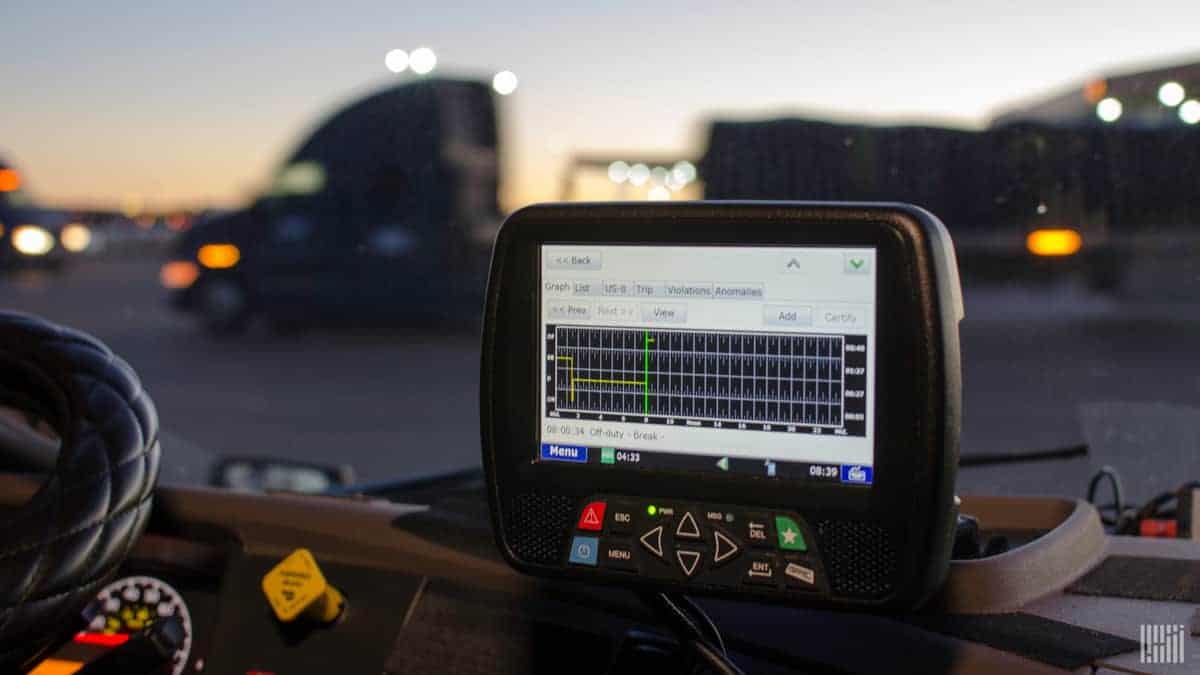
Electronic logging devices (ELDs) have a come a long way since their initial introduction. From a simple technological advancement to a mandatory tool in the trucking landscape, ELDs were designed to replace paper logs and automatically record a driver’s hours of service (HOS) and duty status. The overall goal of this was to help improve compliance, safety, and efficiency across the entire industry. Despite this, many truck drivers and fleet owners are being misled by misinformation that is being spread from truck drivers trying to save an extra dollar or two.
The ELD Mandate Explained
One of the most common myths in trucking is that ELDs are not required for small fleets and that they can continue to use paper logs or other methods to track HOS. As of December 2019, the FMCSA put the “ELD Mandate” into full effect, officially making it a requirement for all CMV’s that are required to keep records of duty status (RODS) to have an ELD. This includes most CMV’s that weigh over 10,000 pounds, haul hazardous materials, operate across state lines, and carry 8-15 passengers for compensation or more than 16 passengers not for compensation.
Risks of Bypassing the ELD Mandate
Many smaller fleets regularly try bypassing the ELD mandate by continuing to use paper logs, using AOBRDs, or trying different mobile application software. Unfortunately, this puts these fleets at risk of consequence, from something small like audits to huge issues like lawsuits. Here are some of the consequences that a driver or fleet could face by trying to bypass the ELD mandate:
- Fines and Penalties: The FMCSA and state agencies can issue fines ranging anywhere from $1,000 to $10,000 per violation. They can also issue penalties which can include out-of-service orders, loss of operating authority, and even suspension or revocation of CDL.
- Audits and Investigations: Audits and investigations are conducted by the FMCSA and state agencies and can involve reviewing records, inspecting vehicles, interviewing drivers or managers, and verifying compliance with other regulations. By not complying with the ELD mandate, you are subject to these audits and investigations at the request of the FMCSA and state agencies at any time.
- Lawsuits and Liabilities: In the event of an accident that results in you, your company, or one of your employees becoming part of a lawsuit. The lack of compliance with the ELD mandate can be used as evidence of negligence, recklessness, or fraud and could result in damages, settlements, and judgments.
The Importance of ELD Compliance & Its Benefits For Your Trucking Operation
The bottom line is that ELD compliance is extremely important to every trucking business, no matter what that guy said to you while you were filling up the other day. Although ELDs can be costly for smaller fleets and owner-operators, there are many benefits past just avoiding fees and penalties. These benefits include operational benefits such as increased efficiency and productivity by reducing paper, optimizing routes, minimizing downtime, and increasing utilization. ELDs are also extremely useful for keeping track of important data such as fuel consumption, maintenance costs, route forecasting, and more. All in all, owner-operators and small fleets are highly recommended embrace the ELD mandate, it is much more than something to cover your back, it is a strategic choice if you want to grow in the industry.